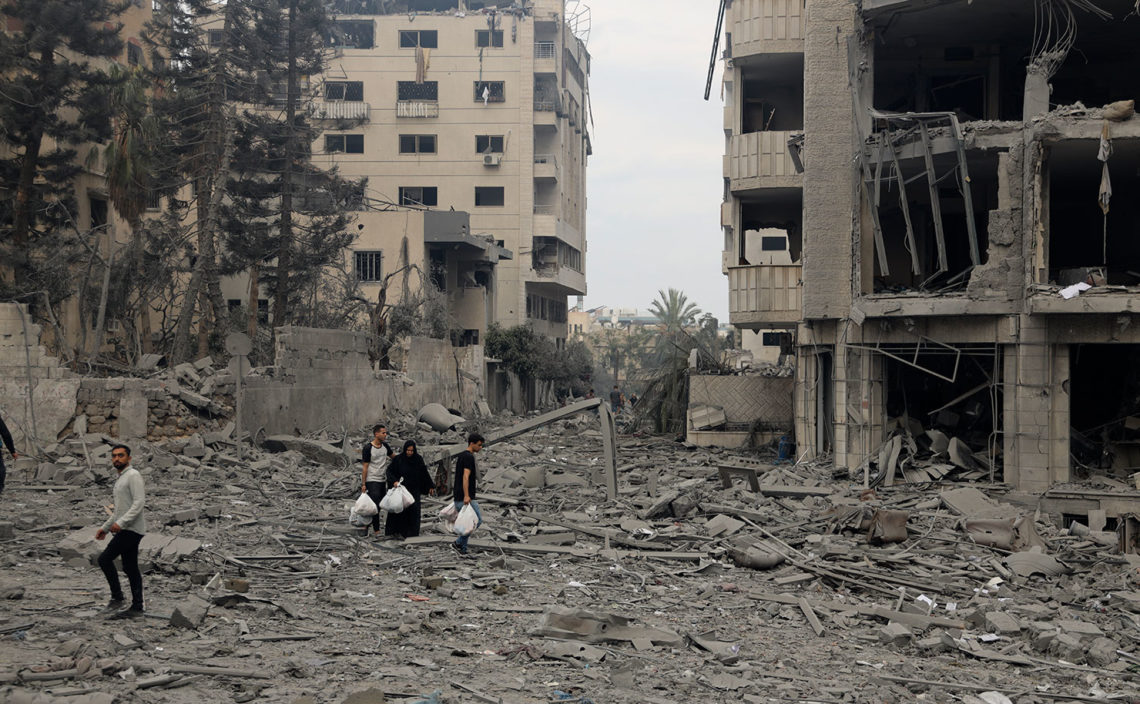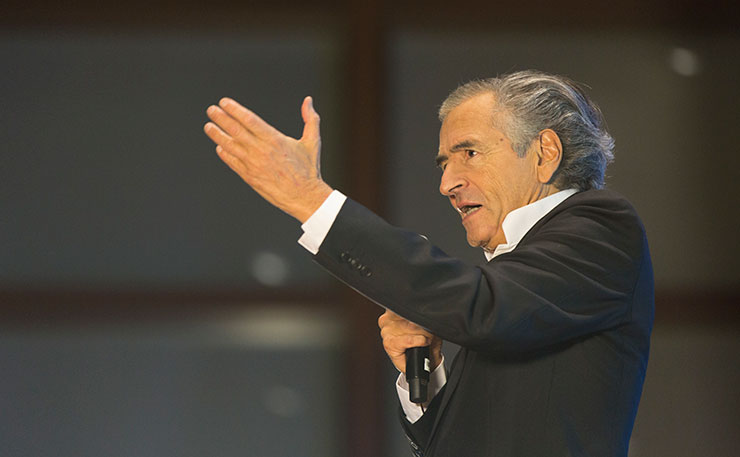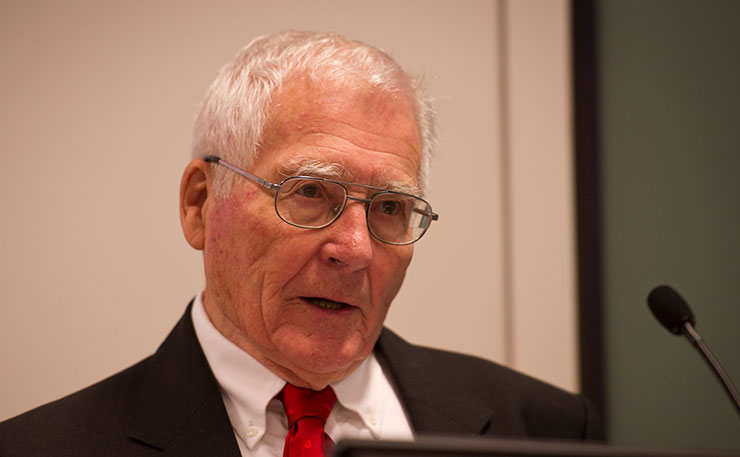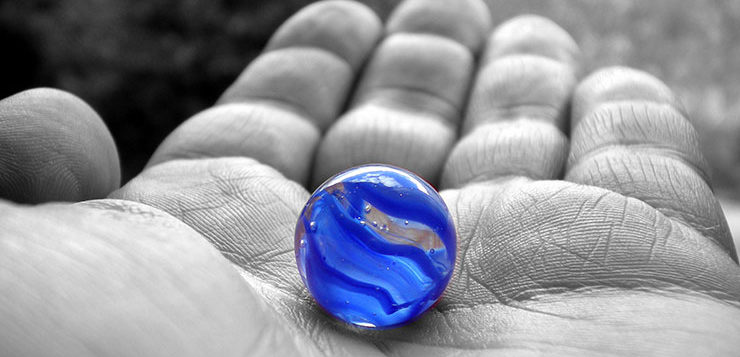David Shearman – an Emeritus Professor of Medicine at Adelaide University and the co-author of many books relating to climate change – has obviously had a life well lived. But what future, he wonders, awaits those yet to come?
As I talk to a friend, a picture on the television screen flashes past my eyes and engulfs my mind. It’s the war in Ukraine, mothers and children escaping from bombs in concrete shelters. They hold each other in terror.
Instantly a locked chapter in my life springs open and I am forced to confront its contents. In a squat concrete air raid shelter a mother sits with her youngster, both in distress. Mum’s body is taut and shaking as I clutch her. We both whimper, incapable of shouts or screams. It is damp and dark, a German bomb thumps and shakes us. Mum moans. Was that our house? I weep in case it was.

I excuse myself from my friend and many hours later I find I am sitting on a park seat. I have been engulfed for hours in a morass of memories merging into today’s horrors; children scouring Ukraine and Palestine bombsites looking for their mothers; trailing with their mothers across deserts or escaping from disorder in Sudan and many other Middle-east and African countries.
Is this what we have worked for all our lives?
This is perhaps a journey that many older people now experience particularly because they can see and feel the pain of a damaged and war-torn world. Their frustration is that they haven’t time to help sustain what is left. Perhaps best to die and be buried in a sack to reduce consumption and the carbon dioxide from cremation.
However today it’s not just old people expressing these thoughts but also those in mid-life. Many young people are distressed by government inaction on climate change, the danger to the planet and their dissolving future.
Indeed, political philosopher Bernard-Henri Levy in his book Left in Dark Times: A Stand against the New Barbarism (2010) writes that humanity has always had a sense of a future that may be better, however bad the present. Since the beginning of history, there was always a time when no-one could suspect that time could end, except in metaphysical terms.

Not any more, it is impending with the inter-related fragmentation of international collectivism and cooperation linked with the impending climate and environmental crises.
After World War 2 our warlike species basked in decades of relative peace, increased living standards and less poverty. Doctors could see progress forever in the conquest of disease.
I ruminated on the flow of unimagined medical advances I had seen in my lifetime. The medical candle lit for me in my eleventh year. Even at this tender age I was caught in the post-war mood of let us build a new future.
I was inspired by the voice of UK Minister Nye Bevan who brought free health care to all. I was overwhelmed by the joy on the faces of ladies smiling to show their new teeth and then the pride of miners with their new metal hips.
This was a brave new world progressing to a happy future. The National Health Service was a happy place to work, only to deteriorate when Thatcher brought neoliberal policies into its management.
Paradise has been lost. Today as a retired doctor I can feel the economic and political threat to medical advances and to the health of future generations. Older people are distressed by lack of health care and dismissive attitudes even from Prime Minsters inferring during the Covid epidemic that older people should accept their fate and let younger people get on with their lives.
Democracies have failed to address the challenge of climate change and have succumbed to the power and influence of fossil fuel industries. I weep over the disease and deaths.
My thoughts flit to society’s gullibility in having their minds and frequently their health enslaved for the profit of the rich and powerful entrepreneurs, the manipulators of social media and darlings of the economic system.
Now in a disintegrating world, society is faced with Artificial Intelligence which is already in the hands of powerful and greedy men at the pinnacle of capitalism. The head of the IMF says it will affect 40 per cent of jobs and enhance productivity. My despairing mind asks where now will we find the truth and how do we avoid destruction by tyrants?

James Lovelock (1919-2022), the visionary scientist created the Gaia hypothesis, which saw the earth as one integrated organism responsible for its own homeostasis. In his final book Novacene; the Coming of Age of Hyper-intelligence (2019) Lovelock explains how humanity must partner with artificial intelligence on climate change and the environment so our chance of survival might increase.
My ordeal is ending, it is evening time and I am still sitting in the park. Tree leaves rustling in the breeze allow me to wrestle my brain from the locked chapter of my past and the alarming future. I get up and wander to a sturdy and reassuring tree. I touch and lean on it. It calms me. Whether a week or a year is left to me, I must fight for this tree for as a doctor I am wedded to all life on Gaia.
As we grow older we accept the inevitability of death, but for some the likely death of Gaia is a much greater burden.
Donate To New Matilda
New Matilda is a small, independent media outlet. We survive through reader contributions, and never losing a lawsuit. If you got something from this article, giving something back helps us to continue speaking truth to power. Every little bit counts.




